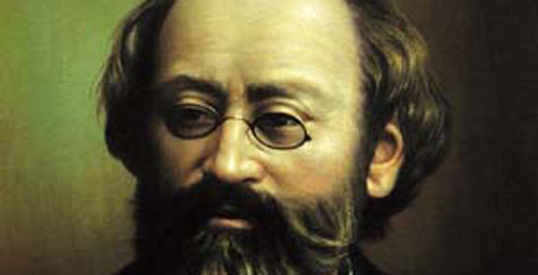Max Bruch: A Romantic Composer’s Legacy
Max Bruch (1838–1920) stands as one of the most lyrical and emotionally resonant composers of the Romantic era. Though often remembered primarily for his enduring Violin Concerto No. 1 in G minor, Bruch’s musical legacy extends far beyond a single masterpiece. His deep commitment to melody, structure, and expressive harmony helped define 19th-century German Romanticism, while his career as a composer, conductor, and educator influenced generations of musicians.

Early Life and Education
Max Christian Friedrich Bruch was born on January 6, 1838, in Cologne, Germany, into a cultured and artistic family. His mother, Wilhelmine Bruch, was a singer and pianist who recognized and nurtured his musical talent from an early age. By the age of nine, Bruch had already composed his first pieces, and at eleven, he began formal training with composer Ferdinand Hiller, one of the most respected musicians in Cologne.
He later studied in Leipzig, immersing himself in the rich traditions of German classical music and refining his skills in composition and theory. During this time, Bruch became heavily influenced by the works of Felix Mendelssohn, Robert Schumann, and Johannes Brahms, adopting their Romantic sensibilities while developing his unique voice.
A Prolific Composer
Bruch’s career as a composer began in earnest in the late 1850s, and his first opera, Scherz, List und Rache, was completed in 1858. He wrote in various genres, including operas, symphonies, chamber music, and choral works. However, it was his orchestral and solo pieces, particularly those featuring the violin, that earned him the most recognition.
Violin Concerto No. 1 in G Minor, Op. 26
Composed in 1866 and revised in 1867, this work is Bruch’s best-known composition. It gained immediate success due to its emotive depth, lyrical lines, and brilliant use of the solo violin. The piece became a staple of the violin repertoire and has been performed and recorded by virtually every major violinist since its debut.
Despite its fame, Bruch once lamented that this single concerto overshadowed his other compositions. Nevertheless, it secured his place among the great Romantic composers.
Other Notable Works
- Scottish Fantasy, Op. 46 (1880): A romantic and evocative piece for violin and orchestra, drawing on Scottish folk melodies.
- Kol Nidrei, Op. 47 (1881): A deeply moving piece for cello and orchestra based on Jewish liturgical themes, showcasing Bruch’s interest in folk and religious music.
- Violin Concerto No. 2 in D minor, Op. 44 and Violin Concerto No. 3 in D minor, Op. 58: Though less well known than his first concerto, these works are rich with expressive power and demonstrate his mature style.
- Symphonies, including Symphony No. 1 in E-flat major and Symphony No. 2 in F minor.
- Choral works, such as Odysseus, Arminius, and The Flight of the Holy Family.
A Life of Teaching and Conducting
In addition to composing, Max Bruch had a distinguished career as a conductor and teacher. He held posts in Coblenz, Sondershausen, Berlin, Bonn, and Liverpool, where he was conductor of the Philharmonic Society. His time in Liverpool (1880–1883) exposed him to a wider European audience and solidified his international reputation.
In 1890, Bruch accepted a prestigious position at the Berlin Hochschule für Musik, where he taught composition until his retirement in 1910. Among his most notable students was Ottorino Respighi, who would later become a prominent composer in his own right.
Musical Style and Influence
Bruch was a staunch traditionalist. While many of his contemporaries—such as Wagner, Liszt, and later Debussy—were experimenting with new harmonic languages and forms, Bruch remained faithful to the Romantic idiom. He prioritized structure, clarity, and melody, resulting in music that was immediately accessible and emotionally direct.
Though his conservative style eventually fell out of favor during the early 20th century, Bruch’s work experienced a revival due to the enduring popularity of his violin concertos and other solo works.
Personal Life and Death
Bruch led a relatively quiet personal life. He married Clara Tuczek, a talented singer, in 1881. They had one son, Max Felix Bruch, who also pursued a career in music.
He continued to compose well into his later years but lived to see much of his work dismissed as old-fashioned. Still, he remained proud of his contributions to German music and to the Romantic tradition. Max Bruch died on October 2, 1920, in Berlin at the age of 82.
Legacy
Although Bruch’s name is most commonly associated with a single violin concerto, his musical output is broad and rich. His works continue to be performed around the world, especially by violinists and cellists seeking to express the emotional depth and lyrical beauty that define his style.
Today, Max Bruch is recognized not just as a one-hit wonder, but as a gifted composer who upheld and refined the Romantic ideal through elegant, heartfelt music.
Conclusion
Max Bruch may not have embraced the radical innovations of his time, but his legacy lies in the timeless beauty of his music. With his masterful Violin Concerto No. 1 and a catalog filled with poignant, meticulously crafted compositions, Bruch remains a cherished figure in classical music history—a testament to the enduring power of melody, emotion, and tradition.

Comments are closed